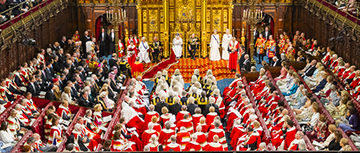If liberals cannot justify toppling a fascist as evil as Saddam Hussein, then our principles stand for nothing
At its core liberalism holds a belief in universal justice, that our political frameworks must acknowledge the inherent value of every individual’s life. Thus to liberals it is clear we must fight the forces of tyranny and unfreedom not just at home but around the world. The case for intervention is always a difficult one. Loss of human life is a terrible cost, as is the political instability that can emerge from conflict. This is not to mention the threat of escalation when facing-off threats from great powers such as Russia or China. Despite this threats such as fascism, warmongering, and gencoide represent clear justifications for military action to prevent human suffering.
Yet recently the West has hesitated to act even against egregious threats and this has led to real human consequences. Such aversion to intervention is, quite evidently, grounded in the Iraq War and the ensuing domestic protest which revivitalised isolationist “anti-war” politics. However, in my view the decision to invade Iraq was not only perfectly justified, but further our unwillingness to defend it only undermines our principles and strengthens isolationist thought.
It is hard to put into words quite how horrifying the evil of Hussein’s regime was. He established absolute power by publicly torturing and murdering any and all opposition within his Ba’ath Party. His regime was brutally repressive and executed thousands of Iraqis with impunity. Arguably his most evil deed came in 1988 when Hussein ordered the Anfal campaign in which more than 100,000 Kurds were murdered by Iraqi forces, and is recognised by the UK government as a genocide against the Kurdish people.
Hussein’s rule of terror was not limited to Iraq, having launched invasions into both Iran and Kuwait, which claimed over half a million lives. His regime also attempted to develop chemical, biological, and nuclear weapons, including an anthrax programme which many believe operated well into the late 1990s. Clearly Hussein represented a serious danger to global security and international law.
By 2003 Saddam Hussein’s genocidal regime had ruled for 24 years and remained an active threat to the Iraqi people and global peace. To allow the regime’s continuation was inexcusable. The breaking point came when Hussein defied the UN’s unanimous resolution 1441 which gave Iraq “a final opportunity to comply with its [WMD] disarmament obligations”. This represented an overt claim by Hussein that Iraq possessed a WMD and provided the final ground for an already unquestionably justified invasion.
Whilst the pretence of the invasion (Iraq’s unlawful possession of a WMD) proved unfounded, it is clear the invasion was beyond justified despite this. Equally, this is not to say there were no mistakes made during the invasion and occupation. However I do not believe it is fair to attribute these mistakes to the politics of interventionism, and other foreign engagements show such errors are not universal. Regardless, given the ability to do so, it is hard to deny we have a moral imperative to topple genocidal dictators – even at great cost. Iraq, despite many serious challenges, is no longer subject to a horrific fascist regime and this can only be heralded as a success.
Our unwillingness to justify Iraq, and thus our aversion to intervention, has grave implications worldwide. In Syria, the lack of consequential action against the Assad regime despite flagrant war-crimes and the use of chemical weapons against civilians has allowed the regime to regain its fascistic grip on power. Further the war crimes committed by the Russian Air-Force in support of Assad went unimpeded, emboldening Putin’s warmongering and defiance of international law. The sobering end-result of this is all too visible in Ukraine.
Likewise, Biden’s decision to withdraw US forces from Afghanistan was driven by domestic opinion, not any sense of reality in Kabul where the US presence was minimal. The then inevitable return to Kabul of the Taliban insurgency and their fascist Islamist ideology has reversed twenty years of progress, which is particularly tragic for the millions of Afghan women who have lost such basic human rights as personal autonomy and access to education.
The plight of Afghanistan and Syria are but two examples of the dire impacts of Western aversion to intervention. Millions have been left abandoned, subjected to lives of terror, deprivation, and unfreedom. Despite successes in the 1990s in Kuwait, Sierra Leone, and Kosovo, it is Iraq which looms over all Western foreign policy. To its critics, who today speak almost unopposed, the Iraq War is a monument to Western hypocrisy and greed. This isolationist mood will continue to persist until liberals and progressives are prepared to stand firm by our principles and defend the unarguably just decision to invade Iraq.
The case for liberal interventionism is of utmost importance, having major ramifications for millions globally who are subjected to brutal regimes. If we cannot justify removing a fascist as evil as Saddam Hussein from power, then what is the point of interventionist politics? Thus invariably, reconciling with Iraq is imperative if we are to reaffirm our commitment to global liberty and to stand up for the world’s most oppressed.



0 Comments